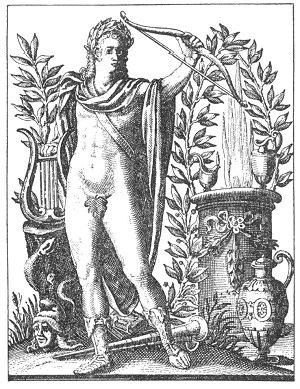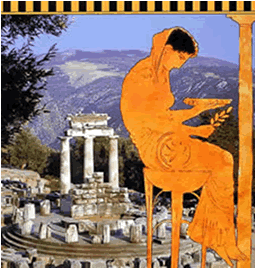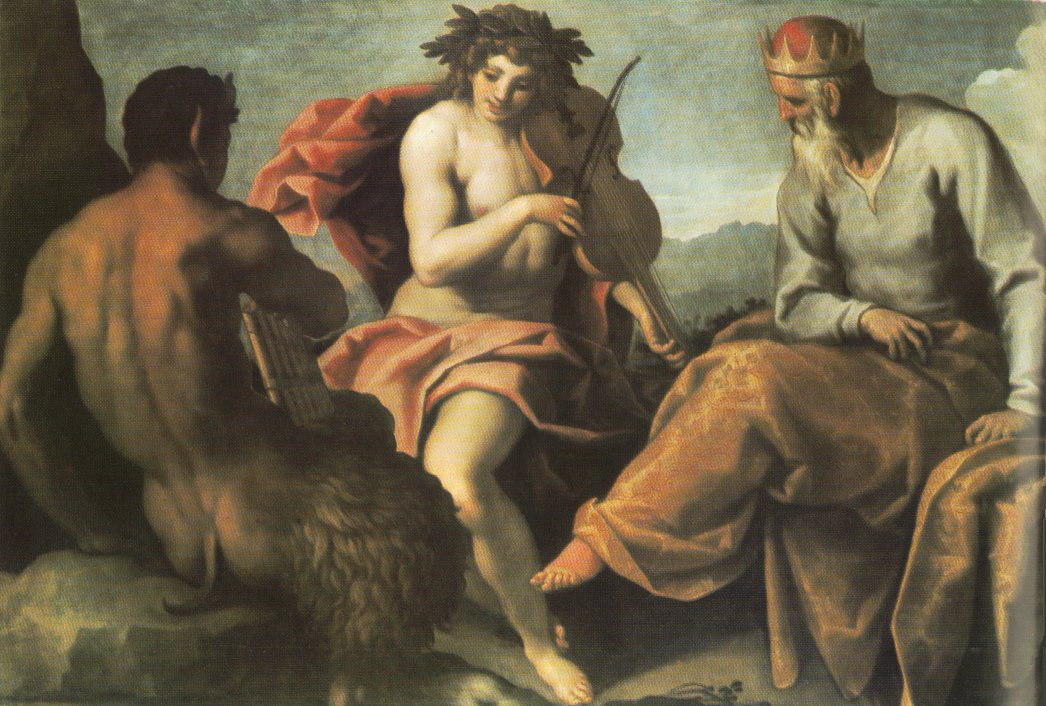THE GREEK ORACLES
 The worship of Apollo included the establishment and maintenance of places of prophecy by means of which the gods could communicate with mankind and reveal futurity to such as deserved the boon. The early history of Greece abounds with accounts of talking trees, rivers, statues, and caves in which nymphs, dryads, or dæmons had taken up their abodes and from which they delivered oracles. While Christian authors have tried to prove that oracular revelations were delivered by the Devil for the purpose of misleading humanity, they have not dared to attack the theory of oracles, because of the repeated reference to it in their own sacred writings.
The worship of Apollo included the establishment and maintenance of places of prophecy by means of which the gods could communicate with mankind and reveal futurity to such as deserved the boon. The early history of Greece abounds with accounts of talking trees, rivers, statues, and caves in which nymphs, dryads, or dæmons had taken up their abodes and from which they delivered oracles. While Christian authors have tried to prove that oracular revelations were delivered by the Devil for the purpose of misleading humanity, they have not dared to attack the theory of oracles, because of the repeated reference to it in their own sacred writings.
If the onyx stones on the shoulders of Israel’s high priest made known by their flashings the will of Jehovah, then a black dove, temporarily endowed with the faculty of speech, could indeed pronounce oracles in the temple of Jupiter Ammon. If the witch of Endor could invoke the shade of Samuel, who in turn gave prophecies to Saul, could not a priestess of Apollo call up the specter of her liege to foretell the destiny of Greece?
The most famous oracles of antiquity were those of Delphi, Dodona, Trophonius, and Latona, of which the talking oak trees of Dodona were the oldest. Though it is impossible to trace back to the genesis of the theory of oracular prophecy, it is known that many of the caves and fissures set aside by the Greeks as oracles were sacred long before the rise of Greek culture.

 “… It was here that the Olympian gods spoke to mortal men through the use of a priesthood, which interpreted the trance-induced utterances of the Pythoness or Pythia. She was a middle-aged woman who sat on a copper-and-gold tripod, or, much earlier, on the “rock of the sibyl” (medium), and crouched over a fire while inhaling the smoke of burning laurel leaves, barley, marijuana, and oil, until a sufficient intoxication for her prophecies had been produced.”
“… It was here that the Olympian gods spoke to mortal men through the use of a priesthood, which interpreted the trance-induced utterances of the Pythoness or Pythia. She was a middle-aged woman who sat on a copper-and-gold tripod, or, much earlier, on the “rock of the sibyl” (medium), and crouched over a fire while inhaling the smoke of burning laurel leaves, barley, marijuana, and oil, until a sufficient intoxication for her prophecies had been produced.”

























